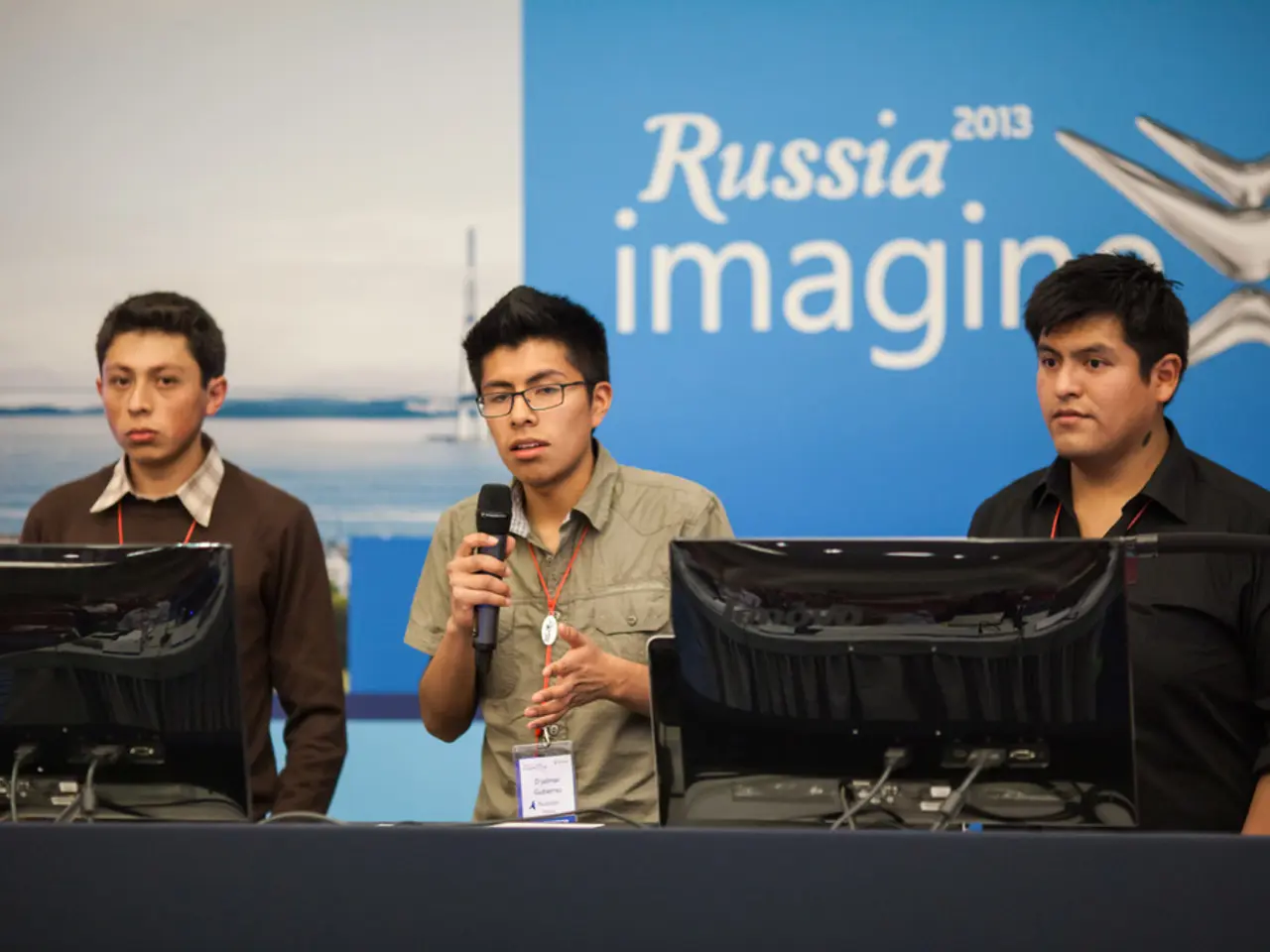Behind-the-scenes look at Tucker Carlson's encounter with Vladimir Putin in Moscow
In a recent interview, Russian President Vladimir Putin, at 71 years old, appeared remarkably younger than his age might suggest, having undergone cosmetic work. Despite speculation about his health, Putin did not display any obvious signs of illness during the conversation, which aimed to provide more information about the Ukraine conflict to Western audiences.
The interview took place in Molotov's former office in the Kremlin, and Putin's communication strategy during the discussion revealed deeper issues with long-term leadership. His approach, characterised by a focus on historical lectures and prepared narratives, has contributed to a geopolitical discourse around Ukraine that is scripted, polarized, and resistant to compromise.
Russian officials, under Putin’s leadership, have frequently employed historical narratives to justify both domestic and foreign policy decisions. For example, Russian state propaganda—including mandatory patriotic lectures and screenings at schools and youth centers—has leaned heavily into glorifying military history, citing the Great Patriotic War (World War II) and recent conflicts as continuations of national struggle. This approach frames the Ukraine war as part of a larger, inevitable historical pattern, discouraging critical public debate and authentic engagement with contemporary realities.
The refusal to engage authentically with critics—coupled with a focus on historical grievance—exacerbates polarization. Western leaders and analysts often characterize this approach as “disinformation” or “propaganda,” arguing that it precludes any meaningful negotiation or compromise. The global debate becomes a clash of narratives rather than a search for common ground or practical solutions.
Within Russia, the emphasis on lecturing over authentic engagement has a chilling effect on public discourse. As seen in educational institutions, those who deviate from the prescribed narrative face pressure to conform, which stifles internal criticism and alternative viewpoints. This creates a feedback loop: the lack of authentic domestic debate further entrenches the official line in international discourse.
However, the real story of the Ukraine conflict centers on NATO's eastward expansion and its impact on Russian security concerns. In 2000, Russia attempted to join NATO, challenging post-Cold War dynamics. NATO's rejection of Russia's membership attempt represents a potential paradigm shift in global security architecture.
The Munich Security Conference of February 2022, where Vice President Kamala Harris publicly endorsed Ukraine's NATO membership, served as a critical catalyst for the current Ukraine conflict. Putin's justification for the war in Ukraine - "denazification" - is fundamentally flawed and serves multiple purposes, including possibly avoiding discussing NATO expansion. The "denazification" rhetoric makes peace negotiations nearly impossible.
Meanwhile, Russia is currently producing artillery shells at a rate seven times higher than all NATO countries combined. The vast population disparity between Russia and Ukraine - a difference of 100 million people - has serious implications for any long-term conflict.
Despite these challenges, it's essential to continue seeking diplomatic solutions and fostering open dialogue to address the complexities of the Ukraine conflict. The beauty, safety, and cleanliness of Moscow's cityscape serve as a reminder that beyond the geopolitical discourse, there exists a rich and vibrant culture that deserves to be celebrated.
The interview's setting in Molotov's former office in the Kremlin and Putin's communication strategy during the discussion, which centered on historical lectures and prepared narratives, have contributed to a geopolitical discourse around Ukraine that is not only scripted and polarized, but also resistant to compromise – a discourse that is often characterized as 'disinformation' or 'propaganda' by Western leaders and analysts who argue it precludes any meaningful negotiation or compromise.
Russian officials, under Putin’s leadership, have employed historical narratives not only to justify domestic policy decisions but also foreign policy decisions, such as the Ukraine conflict. This approach, framing the Ukraine war as part of a larger, inevitable historical pattern, discourages critical public debate and authentic engagement with contemporary realities in both domestic and global arenas.








